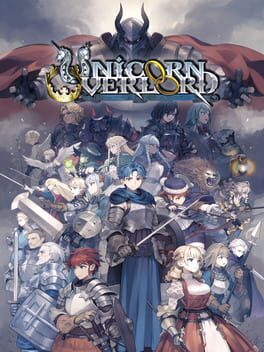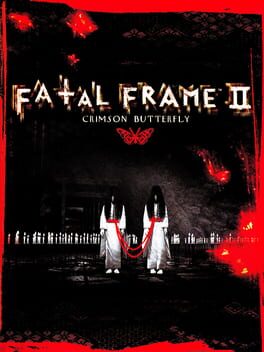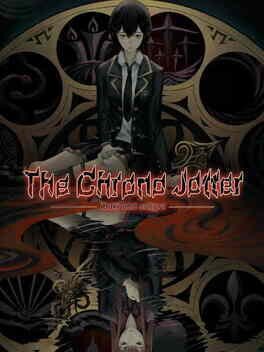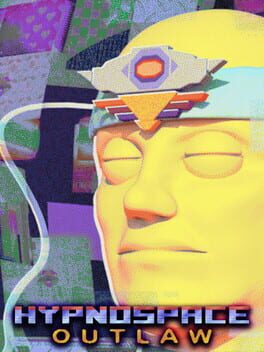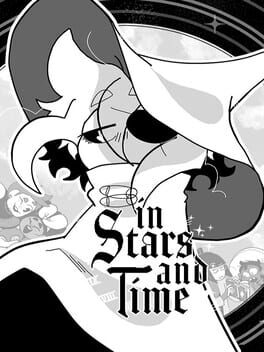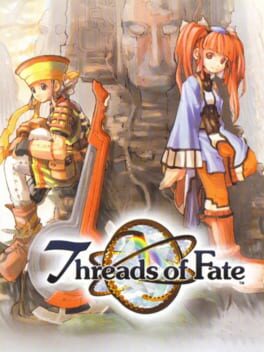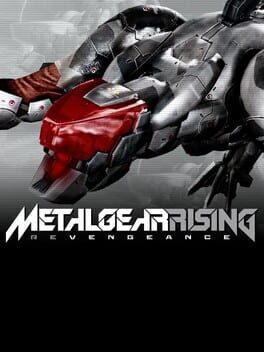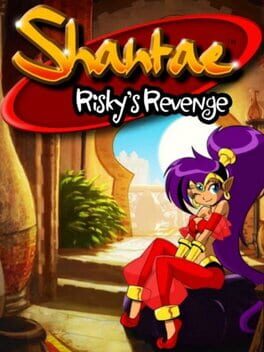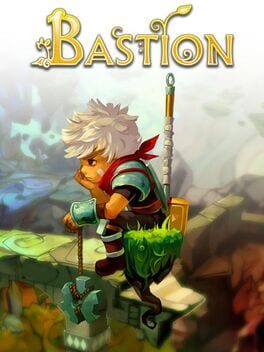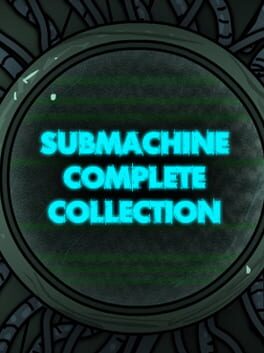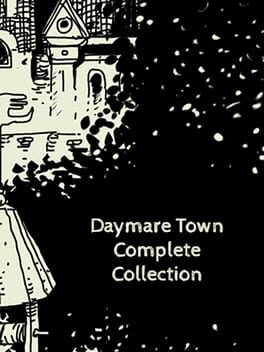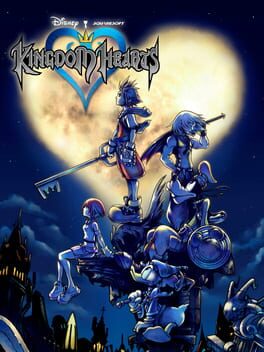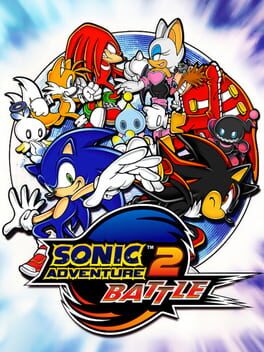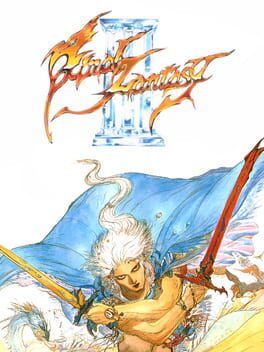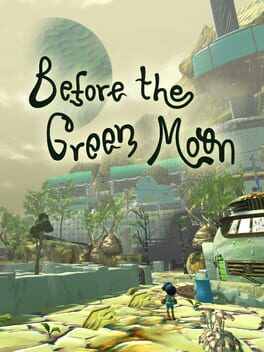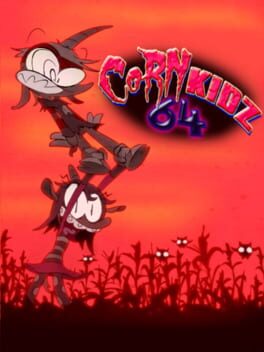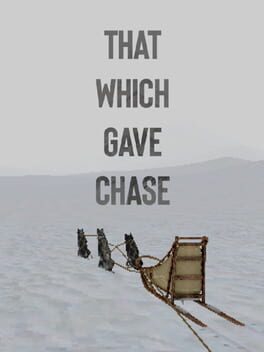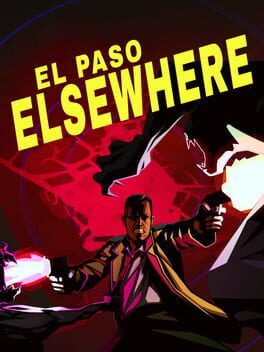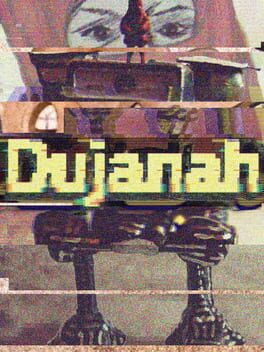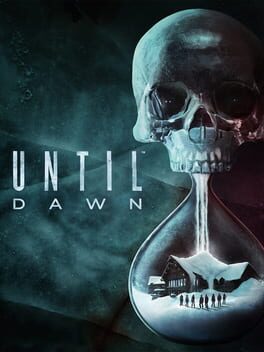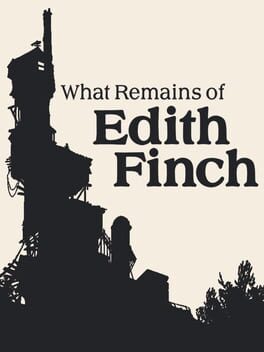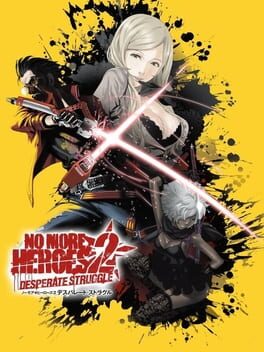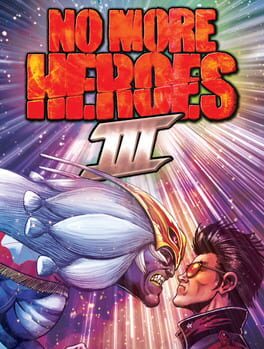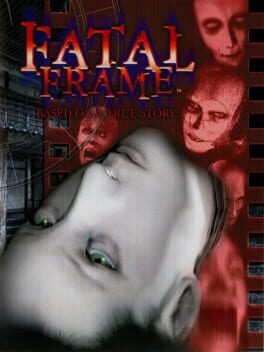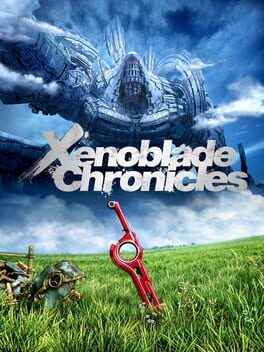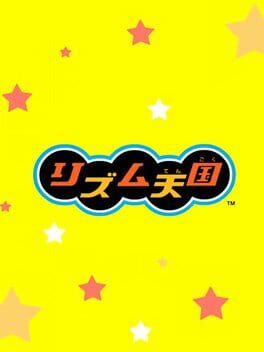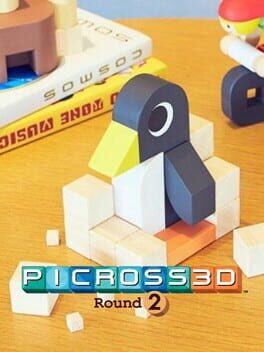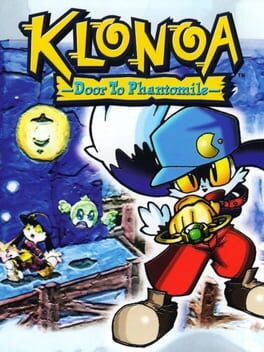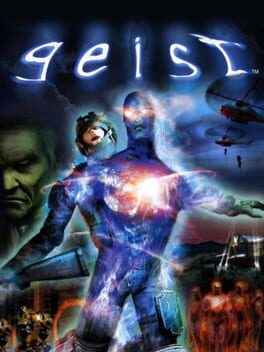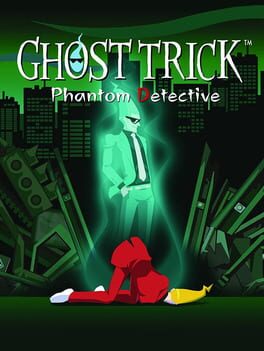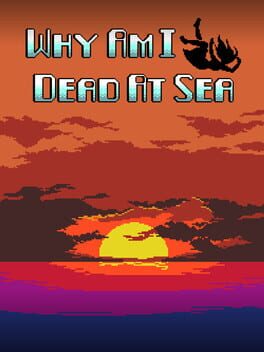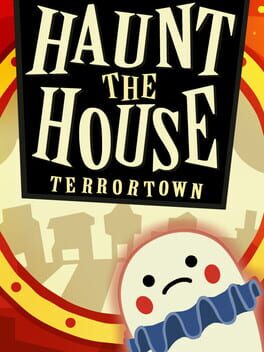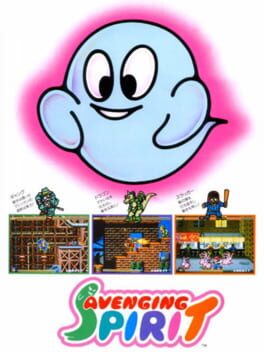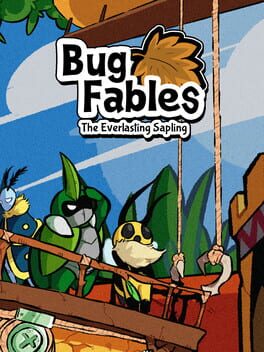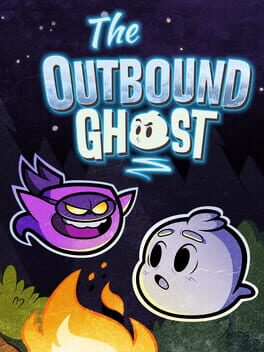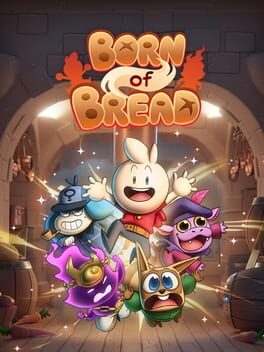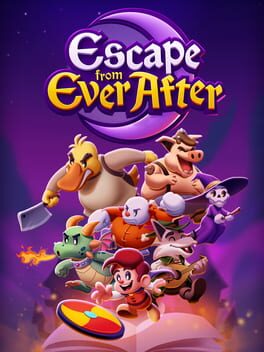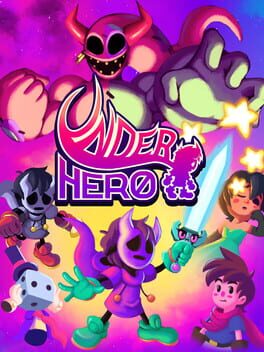Nerdietalk
758 reviews liked by Nerdietalk
almost wrote this off because it looked a bit wholesome games baitish and i'm not into that generally but i'm glad i gave this a go. it was very charming and sweet without being in an annoying way.
enjoyed the progression of the three cases as they not only increased in complexity (not a ton, obviously) with the mysteries involved but also added little touches to the gameplay itself too. the scooter in case 3 also getting a little THPS styled mini-game was a treat.
would absolutely play another one of these or something like it.
enjoyed the progression of the three cases as they not only increased in complexity (not a ton, obviously) with the mysteries involved but also added little touches to the gameplay itself too. the scooter in case 3 also getting a little THPS styled mini-game was a treat.
would absolutely play another one of these or something like it.
Mini Metro
2015
As a kid, I was absolutely obsessed with subways. Whenever my family and I traveled to a new city, my immediate fixation was not the city’s many attractions but rather the intricate infrastructure linking all these various locales. While my family handled the destinations, I handled everything in-between. I wanted to know the most efficient way to get from point A to B, if there were any loopholes or special conditions necessitating an off-the-beaten-path itinerary, and most of all, I kept tabs on any planned changes regarding the evolving transportation so I could make notes of where to adjust and prioritize for future trips. I never realized it back then, but there was a certain satisfaction to memorizing every station and optimal route and running the simulations in my head that eventually led me down the path of engineering.
Mini Metro is essentially my childhood fascination with subways conceptualized as a video game. It’s super easy to pick up thanks to its minimalist design and intuitive controls; passengers are depicted with geometric symbols headed to corresponding symbolic destinations, distinctly colored subway lines are constructed by dragging your mouse between stops, and you can easily manipulate existing lines without disrupting progress by simply clicking and dragging sections of a line to new stops. At the same time, it can quickly become challenging, but this skill ceiling feels fairly approachable because the game is less about memorizing specific formulas and more about understanding implicit guidelines. For example, having a line that hits every stop in the area sounds appealing, but what’s less appealing is how much more time is subsequently spent traveling and loading/unloading passengers; you can at least somewhat account for this by toggling specific stations as “no-stop” to create express lines. The AI is fairly predictable and will always calculate the shortest path to the corresponding destination, but this also means that there’s real potential for them to overload the capacity of certain stations while in-transit between different lines. Alongside this, the game is great at organically iterating upon its basic formula to escalate difficulty by introducing more stops, altering the shape of stops to create more unique passengers and necessitate different routes, and increase the system’s load with more passengers while forcing the player to juggle their already limited number of lines, cars/carriages, and tunnels/bridges as also dictated with newly unlocked maps. At its core, it’s a game that’s great at subtly teaching players how to recognize bottlenecks and micromanage individual elements to fully understand how minor changes can quickly ripple across the fully intertwined system.
My only real nitpicks are that picking apart subway loops can get a bit annoying since you can only fiddle with one exposed end at a time while in loop form; it’s a minor complaint considering that you can pause the game at any time to more carefully reconstruct lines, but adding extra steps to reconstruct common subway loops is fairly noticeable considering Mini Metro’s elegant interface. Also, I do wish that there was a way to construct slightly longer paths along rivers instead of automatically building across them between certain junctions and using up my already limited supply of tunnels and bridges. Nevertheless, I acknowledge that this last gripe is mostly personal, and I think this game absolutely delivers upon its premise with precise execution. With so many different maps and daily challenges to boot, there’s plenty of content to exhaust within the game, and if one finds the basic experience too stressful or is more interested in sheer experimentation, then they can simply turn to endless and creative modes instead. For an accessible yet deceptively deep management game that gives great bang for your buck, I’d say Mini Metro is a fantastic entry point into the world of optimization simulators that more than holds its own against its more daunting peers.
Mini Metro is essentially my childhood fascination with subways conceptualized as a video game. It’s super easy to pick up thanks to its minimalist design and intuitive controls; passengers are depicted with geometric symbols headed to corresponding symbolic destinations, distinctly colored subway lines are constructed by dragging your mouse between stops, and you can easily manipulate existing lines without disrupting progress by simply clicking and dragging sections of a line to new stops. At the same time, it can quickly become challenging, but this skill ceiling feels fairly approachable because the game is less about memorizing specific formulas and more about understanding implicit guidelines. For example, having a line that hits every stop in the area sounds appealing, but what’s less appealing is how much more time is subsequently spent traveling and loading/unloading passengers; you can at least somewhat account for this by toggling specific stations as “no-stop” to create express lines. The AI is fairly predictable and will always calculate the shortest path to the corresponding destination, but this also means that there’s real potential for them to overload the capacity of certain stations while in-transit between different lines. Alongside this, the game is great at organically iterating upon its basic formula to escalate difficulty by introducing more stops, altering the shape of stops to create more unique passengers and necessitate different routes, and increase the system’s load with more passengers while forcing the player to juggle their already limited number of lines, cars/carriages, and tunnels/bridges as also dictated with newly unlocked maps. At its core, it’s a game that’s great at subtly teaching players how to recognize bottlenecks and micromanage individual elements to fully understand how minor changes can quickly ripple across the fully intertwined system.
My only real nitpicks are that picking apart subway loops can get a bit annoying since you can only fiddle with one exposed end at a time while in loop form; it’s a minor complaint considering that you can pause the game at any time to more carefully reconstruct lines, but adding extra steps to reconstruct common subway loops is fairly noticeable considering Mini Metro’s elegant interface. Also, I do wish that there was a way to construct slightly longer paths along rivers instead of automatically building across them between certain junctions and using up my already limited supply of tunnels and bridges. Nevertheless, I acknowledge that this last gripe is mostly personal, and I think this game absolutely delivers upon its premise with precise execution. With so many different maps and daily challenges to boot, there’s plenty of content to exhaust within the game, and if one finds the basic experience too stressful or is more interested in sheer experimentation, then they can simply turn to endless and creative modes instead. For an accessible yet deceptively deep management game that gives great bang for your buck, I’d say Mini Metro is a fantastic entry point into the world of optimization simulators that more than holds its own against its more daunting peers.
Pepper Grinder
2024
Ah. That’s more like it.
As the one person I know who likes Donkey Kong Country, Drill Dozer, and that one burrowing escape sequence from Ori and the Will of the Wisps, I knew Pepper Grinder was going to be right up my alley. What impressed me though, was just how precisely the game melded its influences into something that felt simultaneously fresh yet familiar. The level design is classic obstacle escalation (introduce a concept, scale it up, throw in a twist, and then run the player through a final exam into their victory lap) with DKC inspired secrets with skull coin collectibles for unlocking secret levels. Many of the usual formula beats are present as well to force execution tests, from the usual moving parts in the forms of cannons, rope swings, and grappling points, to constantly present sources of danger like the freezing ocean or the temporary dirt patches created from cooling lava. What sets Pepper Grinder apart however, is that the terrain itself is the main obstacle. It feels like such a natural pairing to seamlessly mesh environmental navigation with the course’s very foundation, and the best moments of the game lean into funneling the player through various layers of shifting and isolated terrain while tearing through all that may stand in their way.
That said, I think to really understand the nuances of Pepper Grinder, one has to readily commit to its time attack mode. I could have been sold on the game-feel alone as an amalgam of Donkey Kong Country’s momentum physics and Drill Dozer’s force feedback, but playing under circumstances that force you to squeeze every possible second out of the timer gives the player a better appreciation of its movement mechanics. Pepper is not very fast on foot, nor can she naturally jump very far. Therefore, you’d think that most speed comes from tunneling through terrain, but it’s not quite that either. Rather, the player has to maintain momentum through the interplay of drilling and jumping by exiting terrain via the drill run (boosting right as you’re about to leave a patch of dirt), which commits the player to the projected arc leaving the terrain but with the reward of significantly more speed. The result is some of the weightiest and most satisfying movement I have ever experienced in any platformer. I was constantly figuring out new ways to save seconds by timing by boosts both within terrain and right before exiting terrain (since you can’t just spam boost and using it too early can lock you out from getting the necessary boost jump out of terrain), skipping certain obstacles entirely with well-placed drill runs, and figuring out how to manage my health to bypass unfavorable cycles and damage boost past mines and thorns. Some of those gold time attack medals were tight ordeals, but I absolutely savored every moment of the grind.
Bosses as a whole are a significant improvement from the usual quality of those in Donkey Kong Country. You’re not safe just waiting above ground, and burrowing to dodge attacks forces you to at least dash-dance underground since drilling means you can’t stay in one place. As a result, the player is constantly on the move, and you’re incentivized to do so anyways given that most of the bosses require multiple hits to defeat and aren’t the usual “invincible until they’re done attacking” crop from DKC. The biggest complaint I can levy here is that boss hit/hurtboxes can feel imprecise; I’ve heard that many players have had difficulty figuring out how to correctly drill into the beetle boss’s underbelly, and while I had no issues there, I did die a few times from the skeleton king’s heel hitbox where there was no visible attack in its vicinity. Still, I much prefer these boss fights over many of its peers, and figuring out when and how to best aim drill runs from the ground to speedrun bosses was just as much of a pleasure as speedrunning the courses themselves.
There are a few questionable design choices that could be touched upon here. Firstly, there’s a shop system present where you can purchase optional stickers from a gacha machine as well as temporary health boosts. The former is mostly forgivable given that they don’t impact the gameplay otherwise and can be cleared in about three minutes of purchasing and opening capsules. That said, I feel as if the latter could be removed entirely given that I never felt pressured to purchase insurance for courses and bosses, especially because I was often taking hits anyways to skip past obstacles and because you’re not going to regain the extra health capacity in-level once it’s gone. Secondly, bosses in time-attack mode force you to watch their opening unskippable cutscenes before getting to the action, and this gets extremely irritating when you’re constantly restarting fights to get better times. Finally, Pepper Grinder has a few gimmick areas in the forms of a couple of robot platforming segments, two snowmobile sections where you just hold forward on the control stick, and a couple of run-and-gun levels with little drilling involved. I can look past most of these given that they don’t take up much time and that I enjoyed all the minecart levels from DKC as is, though I do wish that they spaced the gimmicks apart a bit more given that levels 4-3 and 4-4 both have significant run and gun segments sending each course off.
If I did have any lasting complaints, it would be that I just want more of this game. Most players will finish adventure mode in under four hours. That said, even despite a lack of polish here and there, I absolutely adore Pepper Grinder. At this time of writing, I’ve 100%ed the game and even gone back to a few time trials after snagging all the gold medals just to further polish my records. It’s often difficult for me to pin down what makes a game feel good to play, but in this case, I just know. Pepper Grinder feels like an adrenaline rush made just for me, and though its execution barriers and short length will likely make this a tough sell for many, it is undoubtably some of the most fun I have had with a game this year. If you’re curious or enjoy anything that I’ve discussed in this write-up, please give the demo a shot. They don’t make 2D platformers like this anymore, and Pepper Grinder’s existence leaves me wondering why when they absolutely killed it on their first try.
As the one person I know who likes Donkey Kong Country, Drill Dozer, and that one burrowing escape sequence from Ori and the Will of the Wisps, I knew Pepper Grinder was going to be right up my alley. What impressed me though, was just how precisely the game melded its influences into something that felt simultaneously fresh yet familiar. The level design is classic obstacle escalation (introduce a concept, scale it up, throw in a twist, and then run the player through a final exam into their victory lap) with DKC inspired secrets with skull coin collectibles for unlocking secret levels. Many of the usual formula beats are present as well to force execution tests, from the usual moving parts in the forms of cannons, rope swings, and grappling points, to constantly present sources of danger like the freezing ocean or the temporary dirt patches created from cooling lava. What sets Pepper Grinder apart however, is that the terrain itself is the main obstacle. It feels like such a natural pairing to seamlessly mesh environmental navigation with the course’s very foundation, and the best moments of the game lean into funneling the player through various layers of shifting and isolated terrain while tearing through all that may stand in their way.
That said, I think to really understand the nuances of Pepper Grinder, one has to readily commit to its time attack mode. I could have been sold on the game-feel alone as an amalgam of Donkey Kong Country’s momentum physics and Drill Dozer’s force feedback, but playing under circumstances that force you to squeeze every possible second out of the timer gives the player a better appreciation of its movement mechanics. Pepper is not very fast on foot, nor can she naturally jump very far. Therefore, you’d think that most speed comes from tunneling through terrain, but it’s not quite that either. Rather, the player has to maintain momentum through the interplay of drilling and jumping by exiting terrain via the drill run (boosting right as you’re about to leave a patch of dirt), which commits the player to the projected arc leaving the terrain but with the reward of significantly more speed. The result is some of the weightiest and most satisfying movement I have ever experienced in any platformer. I was constantly figuring out new ways to save seconds by timing by boosts both within terrain and right before exiting terrain (since you can’t just spam boost and using it too early can lock you out from getting the necessary boost jump out of terrain), skipping certain obstacles entirely with well-placed drill runs, and figuring out how to manage my health to bypass unfavorable cycles and damage boost past mines and thorns. Some of those gold time attack medals were tight ordeals, but I absolutely savored every moment of the grind.
Bosses as a whole are a significant improvement from the usual quality of those in Donkey Kong Country. You’re not safe just waiting above ground, and burrowing to dodge attacks forces you to at least dash-dance underground since drilling means you can’t stay in one place. As a result, the player is constantly on the move, and you’re incentivized to do so anyways given that most of the bosses require multiple hits to defeat and aren’t the usual “invincible until they’re done attacking” crop from DKC. The biggest complaint I can levy here is that boss hit/hurtboxes can feel imprecise; I’ve heard that many players have had difficulty figuring out how to correctly drill into the beetle boss’s underbelly, and while I had no issues there, I did die a few times from the skeleton king’s heel hitbox where there was no visible attack in its vicinity. Still, I much prefer these boss fights over many of its peers, and figuring out when and how to best aim drill runs from the ground to speedrun bosses was just as much of a pleasure as speedrunning the courses themselves.
There are a few questionable design choices that could be touched upon here. Firstly, there’s a shop system present where you can purchase optional stickers from a gacha machine as well as temporary health boosts. The former is mostly forgivable given that they don’t impact the gameplay otherwise and can be cleared in about three minutes of purchasing and opening capsules. That said, I feel as if the latter could be removed entirely given that I never felt pressured to purchase insurance for courses and bosses, especially because I was often taking hits anyways to skip past obstacles and because you’re not going to regain the extra health capacity in-level once it’s gone. Secondly, bosses in time-attack mode force you to watch their opening unskippable cutscenes before getting to the action, and this gets extremely irritating when you’re constantly restarting fights to get better times. Finally, Pepper Grinder has a few gimmick areas in the forms of a couple of robot platforming segments, two snowmobile sections where you just hold forward on the control stick, and a couple of run-and-gun levels with little drilling involved. I can look past most of these given that they don’t take up much time and that I enjoyed all the minecart levels from DKC as is, though I do wish that they spaced the gimmicks apart a bit more given that levels 4-3 and 4-4 both have significant run and gun segments sending each course off.
If I did have any lasting complaints, it would be that I just want more of this game. Most players will finish adventure mode in under four hours. That said, even despite a lack of polish here and there, I absolutely adore Pepper Grinder. At this time of writing, I’ve 100%ed the game and even gone back to a few time trials after snagging all the gold medals just to further polish my records. It’s often difficult for me to pin down what makes a game feel good to play, but in this case, I just know. Pepper Grinder feels like an adrenaline rush made just for me, and though its execution barriers and short length will likely make this a tough sell for many, it is undoubtably some of the most fun I have had with a game this year. If you’re curious or enjoy anything that I’ve discussed in this write-up, please give the demo a shot. They don’t make 2D platformers like this anymore, and Pepper Grinder’s existence leaves me wondering why when they absolutely killed it on their first try.
NieR Re[in]carnation
2021
This review contains spoilers
first of all it's not a video game. removing the gacha elements only makes this more clear. the only mechanic is Number Big? if number big, you win. if number not big, pay up. in its final pre-cancellation form they let you skip that and in so doing only reveal there was never anything there in the first place, it was alwasy only a series of whale checks in front of that sweet sweet yoko taro lore you crave. the craven cynicism of it all is existentially destructive for the work, as taro's already tiring eccentricities of hiding crucial details in the least accessible of places now become vectors to leverage for the direct exploitation of his audience into a gambling black hole. better hit the pulls so you can upgrade enough bullshit to see the dark memory that reveals the connection to drakengard 3 that makes everything click into place!! don't want to be left behind!!
but that is known. the game is a gacha and more than that it is a bad one even by the exploitative standards of a blighted genre that shouldn't exist, and that's why it's shutting down. nier reincarnation will forever live on as a series of youtube videos where fans can experience the story fairly close to how it was originally intended, and that's more than you can say for japanese exclusive yorha stageplay number squintillion. so how is that?
bad!! very bad!!! the game takes one of the weakest elements of the nier games, the sidequest and weapon stories all having the exact same tragedy monotonously drilled into your skull over and over and make it the entire game. no weiss and kaine bantering to prop all that up with a jrpg party of the greatest oomfs ever pressed to a PS3 disc, no experimental presentation of combat and level design, just storybook tragedies presented at such arch remove you don't even learn the character's names until you check the menu.
it is ludicrous. it is hilarious. there's one where a kid joins the army to get revenge on the enemy commander who killed his parents, only to as he kills him discover with zero forshdaowing that the commander is his real father and his parents kidnapped him as a child. there's one where a perfect angel little girl's father is beaten to death by his own friends so she runs home crying to her mother, who is in the middle of cheating on him, and is like sweet that owns and leaves lmao. they do the who do you think gave you this heart copypasta!!! and you'd think with such ridiculous material that it would be played with a coens-esque A Serious Man type wry touch, but it isn't at all, it's thuddingly earnest throughout as every tragic story plays out to overwrought voice acting and a haunting sad piano.
it is impossible to take seriously, and by the time the twelfth playable character has experienced a tragic loss and succumbed to the anime nihlism of I'll Kill Them All, another more fundemental question arises: what does all this lore actually give you, as a function of storytelling? the yokoverse is an intricate and near impossible thing, spanning multiple decades and every kind of storytelling medium imaginable, and reincarnation references damn near every single page of it, grasping onto the whole thing and framing it as a sprawling multiverse of human conflict across infinite pasts and infinite futures, with decades of mysteries to unravel and connections to make and characters to ponder and: why? for the exact same No Matter How Bad It Gets, You Can't Give Up On Hope ending that every anime RPG has? that automata already did? the plot is vast and intricate but the themes are narrow and puddle deep.
the more nier blows itself out to greater and greater scales the smaller it feels. in earthbound you fight the same ultimate nihlism of a the universe and then you walk back home again. and you say goodbye to your friends. and you call your dad. and it makes me cry like a fucking baby every time. the original nier, for all its faults, had that specificity. that sense of a journey with characters you loved that overcame the generic nature of its larger plot. here, you heal all the tragedies and fix all the timelines and everyone continues to live inside the infinite quantum simulations that will never end as you strive to find a way past the cyclical apocalypses past and future that repeat for all eternity, and i feel absolutely nothing. a world of endless content and no humanity. how tragic. how so very like nier.
but that is known. the game is a gacha and more than that it is a bad one even by the exploitative standards of a blighted genre that shouldn't exist, and that's why it's shutting down. nier reincarnation will forever live on as a series of youtube videos where fans can experience the story fairly close to how it was originally intended, and that's more than you can say for japanese exclusive yorha stageplay number squintillion. so how is that?
bad!! very bad!!! the game takes one of the weakest elements of the nier games, the sidequest and weapon stories all having the exact same tragedy monotonously drilled into your skull over and over and make it the entire game. no weiss and kaine bantering to prop all that up with a jrpg party of the greatest oomfs ever pressed to a PS3 disc, no experimental presentation of combat and level design, just storybook tragedies presented at such arch remove you don't even learn the character's names until you check the menu.
it is ludicrous. it is hilarious. there's one where a kid joins the army to get revenge on the enemy commander who killed his parents, only to as he kills him discover with zero forshdaowing that the commander is his real father and his parents kidnapped him as a child. there's one where a perfect angel little girl's father is beaten to death by his own friends so she runs home crying to her mother, who is in the middle of cheating on him, and is like sweet that owns and leaves lmao. they do the who do you think gave you this heart copypasta!!! and you'd think with such ridiculous material that it would be played with a coens-esque A Serious Man type wry touch, but it isn't at all, it's thuddingly earnest throughout as every tragic story plays out to overwrought voice acting and a haunting sad piano.
it is impossible to take seriously, and by the time the twelfth playable character has experienced a tragic loss and succumbed to the anime nihlism of I'll Kill Them All, another more fundemental question arises: what does all this lore actually give you, as a function of storytelling? the yokoverse is an intricate and near impossible thing, spanning multiple decades and every kind of storytelling medium imaginable, and reincarnation references damn near every single page of it, grasping onto the whole thing and framing it as a sprawling multiverse of human conflict across infinite pasts and infinite futures, with decades of mysteries to unravel and connections to make and characters to ponder and: why? for the exact same No Matter How Bad It Gets, You Can't Give Up On Hope ending that every anime RPG has? that automata already did? the plot is vast and intricate but the themes are narrow and puddle deep.
the more nier blows itself out to greater and greater scales the smaller it feels. in earthbound you fight the same ultimate nihlism of a the universe and then you walk back home again. and you say goodbye to your friends. and you call your dad. and it makes me cry like a fucking baby every time. the original nier, for all its faults, had that specificity. that sense of a journey with characters you loved that overcame the generic nature of its larger plot. here, you heal all the tragedies and fix all the timelines and everyone continues to live inside the infinite quantum simulations that will never end as you strive to find a way past the cyclical apocalypses past and future that repeat for all eternity, and i feel absolutely nothing. a world of endless content and no humanity. how tragic. how so very like nier.
Unicorn Overlord
2024
I have to admit to having a certain bias towards Unicorn Overlord, and it's not just that I love Vanillaware. They're perfectly capable of putting out mid. (Guess exactly which games I'm talking about! If you're wrong I'll fill your bed with ants.) It's just that this is maybe the hardest Vanillaware has come for me specifically, as a person who loves old-school Fire Emblem. And also they came for me by putting Berengaria in it.
I'm going to be the smartest person on this website and not preface everything positive I say about the game with complaints about the story. Bitches see a simple, sincere fantasy RPG bursting with deliberately old-fashioned charm and be like "why did the developer forget to put in as many weird plot twists as they did in their sci-fi/mystery De Facto Visual Novel? Are they stupid?" The game is extremely effective at creating the ultra-specific vibe and tone that I associate with pre-Awakening Fire Emblem, but I honestly can't do a deep dive into my feelings about that without it becoming a long, terrible, disjointed, off-topic rant on which I've forbidden myself from going here, you're welcome. The point is, the writing (in tandem with overall presentation and particularly excellent voice direction, not that that's a thing Fire Emblem has ever had outside of maybe SoV) is in fact a huge part of why the game is an absolute delight to me. They know exactly what they're doing: feeding a niche that's been starving for years.
That said, none of them involve the words "boring" or "clichéd" but there are more interesting things to critique about the story. It is, in all fairness, a genre staple but UO does go heavier than most on being, just, relentlessly monarchist as a narrative--they're very much channeling Kaga here. (Do not be misled by my enthusiasm for specifically old-school Fire Emblem including a couple of the Kaga games, Shozo Kaga is fucking wack.) All the worldbuilding around Bastorias is also... look, we're gonna keep drawing Fire Emblem comparisons here, this was clearly an attempt at doing Tellius that falls really flat, although not as flat perhaps as a race of bunny people who were almost completely exterminated by the protagonist's own father and the one you recruit doesn't even care about that and it literally never comes up in the plot again outside of the one conversation with her and it only comes up in their supports as setup for a repetitive joke about how they want to breed a lot, get it they're bun[We apologize for this long, terrible, disjointed, off-topic rant about Fire Emblem Awakening. The reviewer has been tranquilized and will resume writing at a later date. Thank you for your patience.]
So the gameplay! Unicorn Overlord is a game with a vast breadth of different experiences you can get out of it based on what you put in. The core mechanics have a level of depth that can trap a certain kind of person on menu screens weighing their options for hours (this is a good thing), but the difficulty settings offer enough variance that you can either autopilot through it without understanding a damn thing or be absolutely required to master the system, to your preference. I didn't bother trying the lowest difficulty setting, but normal mode is already quite easy if you're getting absorbed in the strategy. The highest (starting) difficulty, on the other hand, is a hell of a jump--I think anyone who's complained about the gameplay being basic or too easy definitely didn't try changing settings. I won't pretend I stayed on it for most of the run--I basically 100%ed the game as I went along and ended up spending about 90 hours on it, which makes a challenge level at which you're routinely resetting battles a big ask. The game is also just not overly susceptible to being boring when you are having an easy time, since at least on normal you do still have to put together pretty strong units to keep cruising when you get to the later story maps. But I'm definitely cranking the difficulty up and committing to it when I inevitably replay the game a ways down the line--whenever I did dip my toe in, the tension was fantastic and all the mechanical depth felt heightened by how much more important it was to optimize.
A big reason I spent so long on the game is that even the overworld is honestly pretty great. It's shockingly big and dense. It's also just explorable enough for the process to be really addictive without feeling like a grind or a distraction from the main gameplay loop, and it's rewarding to do a lot of exploration because the economies for both gold and the secondary currency, Honors, are nicely balanced. Even doing basically everything, I never felt rich enough that I could just grab up everything I wanted in a shop without thinking about it, and it took right up until the end of the game before I had maxed out my unit slots with Honors, which freed up the remainder for weapon upgrades.
Oh, I did also really want to talk about the upgrade system! The idea of one in a strategy game sounded dicey to me when I first saw upgrade materials available in a special shop, not having encountered the game's only blacksmith yet, but I actually think it's genius. You don't gain access to the mechanic until the late game, and it accomplishes a lot of interesting things while also being rock simple: no matter which weapon you're forging, the upgrade just makes its stats equal to those of the highest tier of weapons (which can't be forged). This means getting to the smith is a huge explosion of new and powerful options, since you've been collecting weapons with useful secondary effects that fell off in terms of stats throughout the entire game--a thing that the game could do, making new equipment feel constantly exciting and juicy while maintaining an increasing power curve, because they knew the smith was coming and everything would be useful again in the end. Crucially it also rewards players with hoarding instincts, a moment of karmic catharsis that SRPG fans have had coming for decades. It's a relatively small part of the game, but it really stands out to me as a design masterstroke.
Probably the low point of the game is, just, everything related to what I guess I have to call the marriage mechanic. The fact that you can kind of a little maybe if you squint almost have Alain marry another man but not really is an extremely valid critique that I feel somewhat strangely about considering I mostly just think the game would be improved by not having a ludonarrative Marriage Mechanic at all. Sorry for still being salty about Fire Emblem, but I can just about, somewhat charitably, rate Alain average as a Lord. The last thing he needs is to moonlight as a fucking Avatar. And, true to Fire Emblem Avatar romances, even Alain's straight options that are actually explicitly confirmed are perhaps the blandest, most lifeless pieces of romance writing in the developer's catalogue. Still, as much as I'd rather just sidestep the romance, it must be said that I don't think Vanillaware realizes how gay their core audience skews, which is funny for a studio that made its name with a sexy anime opera about doomed romances between people with self-worth issues who can't decide how they should feel about their parents.
That's the heaviest ding I can give it, but I still think Unicorn Overlord is easily top three material from one of my favorite developers. It's a simple, nostalgic aesthetic experience layered on top of a vast, freeform, addictive tactical gameplay loop that can be as accessible or as crunchy as you choose to make it and, I think, will prove incredibly replayable for a game as long as this.
And don't let anyone fool you, this is peak fiction.
I'm going to be the smartest person on this website and not preface everything positive I say about the game with complaints about the story. Bitches see a simple, sincere fantasy RPG bursting with deliberately old-fashioned charm and be like "why did the developer forget to put in as many weird plot twists as they did in their sci-fi/mystery De Facto Visual Novel? Are they stupid?" The game is extremely effective at creating the ultra-specific vibe and tone that I associate with pre-Awakening Fire Emblem, but I honestly can't do a deep dive into my feelings about that without it becoming a long, terrible, disjointed, off-topic rant on which I've forbidden myself from going here, you're welcome. The point is, the writing (in tandem with overall presentation and particularly excellent voice direction, not that that's a thing Fire Emblem has ever had outside of maybe SoV) is in fact a huge part of why the game is an absolute delight to me. They know exactly what they're doing: feeding a niche that's been starving for years.
That said, none of them involve the words "boring" or "clichéd" but there are more interesting things to critique about the story. It is, in all fairness, a genre staple but UO does go heavier than most on being, just, relentlessly monarchist as a narrative--they're very much channeling Kaga here. (Do not be misled by my enthusiasm for specifically old-school Fire Emblem including a couple of the Kaga games, Shozo Kaga is fucking wack.) All the worldbuilding around Bastorias is also... look, we're gonna keep drawing Fire Emblem comparisons here, this was clearly an attempt at doing Tellius that falls really flat, although not as flat perhaps as a race of bunny people who were almost completely exterminated by the protagonist's own father and the one you recruit doesn't even care about that and it literally never comes up in the plot again outside of the one conversation with her and it only comes up in their supports as setup for a repetitive joke about how they want to breed a lot, get it they're bun[We apologize for this long, terrible, disjointed, off-topic rant about Fire Emblem Awakening. The reviewer has been tranquilized and will resume writing at a later date. Thank you for your patience.]
So the gameplay! Unicorn Overlord is a game with a vast breadth of different experiences you can get out of it based on what you put in. The core mechanics have a level of depth that can trap a certain kind of person on menu screens weighing their options for hours (this is a good thing), but the difficulty settings offer enough variance that you can either autopilot through it without understanding a damn thing or be absolutely required to master the system, to your preference. I didn't bother trying the lowest difficulty setting, but normal mode is already quite easy if you're getting absorbed in the strategy. The highest (starting) difficulty, on the other hand, is a hell of a jump--I think anyone who's complained about the gameplay being basic or too easy definitely didn't try changing settings. I won't pretend I stayed on it for most of the run--I basically 100%ed the game as I went along and ended up spending about 90 hours on it, which makes a challenge level at which you're routinely resetting battles a big ask. The game is also just not overly susceptible to being boring when you are having an easy time, since at least on normal you do still have to put together pretty strong units to keep cruising when you get to the later story maps. But I'm definitely cranking the difficulty up and committing to it when I inevitably replay the game a ways down the line--whenever I did dip my toe in, the tension was fantastic and all the mechanical depth felt heightened by how much more important it was to optimize.
A big reason I spent so long on the game is that even the overworld is honestly pretty great. It's shockingly big and dense. It's also just explorable enough for the process to be really addictive without feeling like a grind or a distraction from the main gameplay loop, and it's rewarding to do a lot of exploration because the economies for both gold and the secondary currency, Honors, are nicely balanced. Even doing basically everything, I never felt rich enough that I could just grab up everything I wanted in a shop without thinking about it, and it took right up until the end of the game before I had maxed out my unit slots with Honors, which freed up the remainder for weapon upgrades.
Oh, I did also really want to talk about the upgrade system! The idea of one in a strategy game sounded dicey to me when I first saw upgrade materials available in a special shop, not having encountered the game's only blacksmith yet, but I actually think it's genius. You don't gain access to the mechanic until the late game, and it accomplishes a lot of interesting things while also being rock simple: no matter which weapon you're forging, the upgrade just makes its stats equal to those of the highest tier of weapons (which can't be forged). This means getting to the smith is a huge explosion of new and powerful options, since you've been collecting weapons with useful secondary effects that fell off in terms of stats throughout the entire game--a thing that the game could do, making new equipment feel constantly exciting and juicy while maintaining an increasing power curve, because they knew the smith was coming and everything would be useful again in the end. Crucially it also rewards players with hoarding instincts, a moment of karmic catharsis that SRPG fans have had coming for decades. It's a relatively small part of the game, but it really stands out to me as a design masterstroke.
Probably the low point of the game is, just, everything related to what I guess I have to call the marriage mechanic. The fact that you can kind of a little maybe if you squint almost have Alain marry another man but not really is an extremely valid critique that I feel somewhat strangely about considering I mostly just think the game would be improved by not having a ludonarrative Marriage Mechanic at all. Sorry for still being salty about Fire Emblem, but I can just about, somewhat charitably, rate Alain average as a Lord. The last thing he needs is to moonlight as a fucking Avatar. And, true to Fire Emblem Avatar romances, even Alain's straight options that are actually explicitly confirmed are perhaps the blandest, most lifeless pieces of romance writing in the developer's catalogue. Still, as much as I'd rather just sidestep the romance, it must be said that I don't think Vanillaware realizes how gay their core audience skews, which is funny for a studio that made its name with a sexy anime opera about doomed romances between people with self-worth issues who can't decide how they should feel about their parents.
That's the heaviest ding I can give it, but I still think Unicorn Overlord is easily top three material from one of my favorite developers. It's a simple, nostalgic aesthetic experience layered on top of a vast, freeform, addictive tactical gameplay loop that can be as accessible or as crunchy as you choose to make it and, I think, will prove incredibly replayable for a game as long as this.
And don't let anyone fool you, this is peak fiction.
In this game I think I came across one of the most interesting and powerful ways to portray trauma through a personal and autobiographical lens using video game language.
There is something so overwhelming and deeply moving about finding one's agency intertwined with a personal story that I think is impossible to replicate in other mediums, and this game I think makes masterful work of it.
It's a sharp, difficult and painful story told with great courage, sincerity and insight, and I think it's really something precious.
One thing that particularly struck me is that this game was supported with funds dedicated specifically to work that deals with queer themes: I always feel really admired by how video games are becoming a safe space for transgender people and other marginalized categories because it makes me think about how important it is today to use interactivity to bring forward issues of identity, and I think it's very healthy and important to be able to have these complex experiences of engaging with other subjectivities.
There is something so overwhelming and deeply moving about finding one's agency intertwined with a personal story that I think is impossible to replicate in other mediums, and this game I think makes masterful work of it.
It's a sharp, difficult and painful story told with great courage, sincerity and insight, and I think it's really something precious.
One thing that particularly struck me is that this game was supported with funds dedicated specifically to work that deals with queer themes: I always feel really admired by how video games are becoming a safe space for transgender people and other marginalized categories because it makes me think about how important it is today to use interactivity to bring forward issues of identity, and I think it's very healthy and important to be able to have these complex experiences of engaging with other subjectivities.
The Chrono Jotter
2021
Heard the translation on this got fixed, so I dipped in for a look. First Chinese-made yuri visual novel I've played.
Hard to talk about why I liked this without spoiling something, so let's just say it's your usual death game minimalist VN which is here for a good time, not a long time. Keen for more from the same writer. Good stuff.
Hard to talk about why I liked this without spoiling something, so let's just say it's your usual death game minimalist VN which is here for a good time, not a long time. Keen for more from the same writer. Good stuff.
Hypnospace Outlaw
2019
I had a rough start with Hypnospace Outlaw. The opening hour led me to believe it was first and foremost anti-capitalist satire, and when the game resisted my actions made under this assumption, I was frustrated. The premise alone, sleep being commodified in the name of productivity, sounds dystopian. The tutorial introduces your role as an online moderator, which you perform by reporting violations such as copyright infringement and harassment. You’re told that, although you can submit a report once you meet the report quota, you can earn a cash prize for each violation reported beyond this quota. This immediately brought to mind a similar mechanic in Papers, Please, which incentivizes you to detain people whenever possible for a commission. Sure, in Hypnospace you’re only paid in hypnocoins which explicitly have no real-world value, and sure, there’s no backstory about how I have to feed and house my starving family, but come on! I went in expecting to have my morals pushed and was ready to wield (and abuse) my authority.
That’s not what Hypnospace Outlaw is.
While struggling to deal with the game’s second case, centering around harassment in the teen forum, I was forced to realize what Hypnospace Outlaw was actually trying to do. I’d found a lead about a site called “The Dumpster,” a mean-spirited blog making fun of lolcows. None of what was on that blog was outright harassment – reading between the lines it’s obviously meant to be demeaning and cruel, but the language is mild and inoffensive enough so that it’s following the letter but not the spirit of the law. That didn’t deter me, and I tried to report every single line of text on the site for harassment. But none of them actually stuck – I got told over and over again to stop sending false reports. “But how am I supposed to abuse my authority if the standards for what constitutes a violation are so high?” I thought. “It’s like I really am supposed to act like a regular moderator.”
After that point it stuck. I had been trying to shove square pegs into round holes, but once I realized my place in Hypnospace, I embraced it. I stopped looking at everything as a potential violation and started to lose myself in the different communities and subcultures found on the forums.
Hypnospace Outlaw is pure fun. It’s unrelentingly earnest and empathetic to the people inhabiting its fictional world, and my role as moderator is just a framing device to put me, the player, as a tourist into this world. It perfectly balances an absurd, almost cartoonist tone while still feeling entirely grounded. People are weird! When given complete freedom to express yourself in a judgement-free (or at least judgement-lite) zone, we’re all cringe and embarrassing!
In recent years I’ve been making an effort let myself enjoy things without shame. I’m only 20, so I wasn’t even alive when this game would have taken place, but it resonated with my journey with unrestricted internet access and how I portray myself online. I remember making a Tumblr account at 13 and over-decorating it to make it feel like my own space before feeling so ashamed at how “cringey” it all was that I deleted it before ever posting anything. Even today, I’m always terrified to post my own thoughts and opinions (like this review!) because putting it out into the world and having it be perceived, people forming ideas about me separate from how I view myself, is terrifying. Anything I put out into the world becomes a reflection of myself, and sincerity is terrifying! It’s so much easier to hide behind a veil of irony!
The people of Hypnospace, on the other hand, are so unabashedly themselves. Each and every person’s page is a sensory nightmare of conflicting colours, textures, sounds, and imagery. But it feels so personal and so earnest that I can’t help but smile anyway. That’s admirable, and something I want to work on myself.
It’s kind of funny then, how I went in expecting this to be mean-spirited and cynical, only for it to instead be a love letter to the internet and those that put a piece of themselves online. I don’t think I could have had this same conclusion if not for my faulty first impression of Hypnospace Outlaw.
That’s not what Hypnospace Outlaw is.
While struggling to deal with the game’s second case, centering around harassment in the teen forum, I was forced to realize what Hypnospace Outlaw was actually trying to do. I’d found a lead about a site called “The Dumpster,” a mean-spirited blog making fun of lolcows. None of what was on that blog was outright harassment – reading between the lines it’s obviously meant to be demeaning and cruel, but the language is mild and inoffensive enough so that it’s following the letter but not the spirit of the law. That didn’t deter me, and I tried to report every single line of text on the site for harassment. But none of them actually stuck – I got told over and over again to stop sending false reports. “But how am I supposed to abuse my authority if the standards for what constitutes a violation are so high?” I thought. “It’s like I really am supposed to act like a regular moderator.”
After that point it stuck. I had been trying to shove square pegs into round holes, but once I realized my place in Hypnospace, I embraced it. I stopped looking at everything as a potential violation and started to lose myself in the different communities and subcultures found on the forums.
Hypnospace Outlaw is pure fun. It’s unrelentingly earnest and empathetic to the people inhabiting its fictional world, and my role as moderator is just a framing device to put me, the player, as a tourist into this world. It perfectly balances an absurd, almost cartoonist tone while still feeling entirely grounded. People are weird! When given complete freedom to express yourself in a judgement-free (or at least judgement-lite) zone, we’re all cringe and embarrassing!
In recent years I’ve been making an effort let myself enjoy things without shame. I’m only 20, so I wasn’t even alive when this game would have taken place, but it resonated with my journey with unrestricted internet access and how I portray myself online. I remember making a Tumblr account at 13 and over-decorating it to make it feel like my own space before feeling so ashamed at how “cringey” it all was that I deleted it before ever posting anything. Even today, I’m always terrified to post my own thoughts and opinions (like this review!) because putting it out into the world and having it be perceived, people forming ideas about me separate from how I view myself, is terrifying. Anything I put out into the world becomes a reflection of myself, and sincerity is terrifying! It’s so much easier to hide behind a veil of irony!
The people of Hypnospace, on the other hand, are so unabashedly themselves. Each and every person’s page is a sensory nightmare of conflicting colours, textures, sounds, and imagery. But it feels so personal and so earnest that I can’t help but smile anyway. That’s admirable, and something I want to work on myself.
It’s kind of funny then, how I went in expecting this to be mean-spirited and cynical, only for it to instead be a love letter to the internet and those that put a piece of themselves online. I don’t think I could have had this same conclusion if not for my faulty first impression of Hypnospace Outlaw.
In Stars and Time
2023
I'd been following the development of this game for a while, really excited by its premise and art style. Although the proof of concept for this game, START AGAIN: a prologue, didn't do much for me, I was really excited to see what the full game would deliver. And wow, does In Stars and Time deliver.
Time loops, specifically Groundhog Day time loops, are one of my favourite story devices. ISAT explores an aspect of these kinds of time loops most stories take for granted, though: the nihilistic disregard for others. ISAT is carried by excellent writing and an endearing cast, and Siffrin's slow descent into madness and apathy form a central part of his development which got me invested. He struggles hard with refusing to give into apathy which is a take we don't get to see often. Anything more would be spoilers!
ISAT has the honour of sitting among the few games that made me cry. If you can put up with repeating the same gameplay segments, you owe it to yourself to try this one out.
Time loops, specifically Groundhog Day time loops, are one of my favourite story devices. ISAT explores an aspect of these kinds of time loops most stories take for granted, though: the nihilistic disregard for others. ISAT is carried by excellent writing and an endearing cast, and Siffrin's slow descent into madness and apathy form a central part of his development which got me invested. He struggles hard with refusing to give into apathy which is a take we don't get to see often. Anything more would be spoilers!
ISAT has the honour of sitting among the few games that made me cry. If you can put up with repeating the same gameplay segments, you owe it to yourself to try this one out.


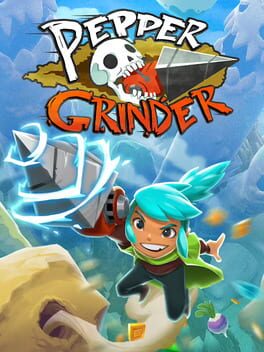
![NieR Re[in]carnation](https://images.igdb.com/igdb/image/upload/t_cover_big/co7bm4.jpg)
